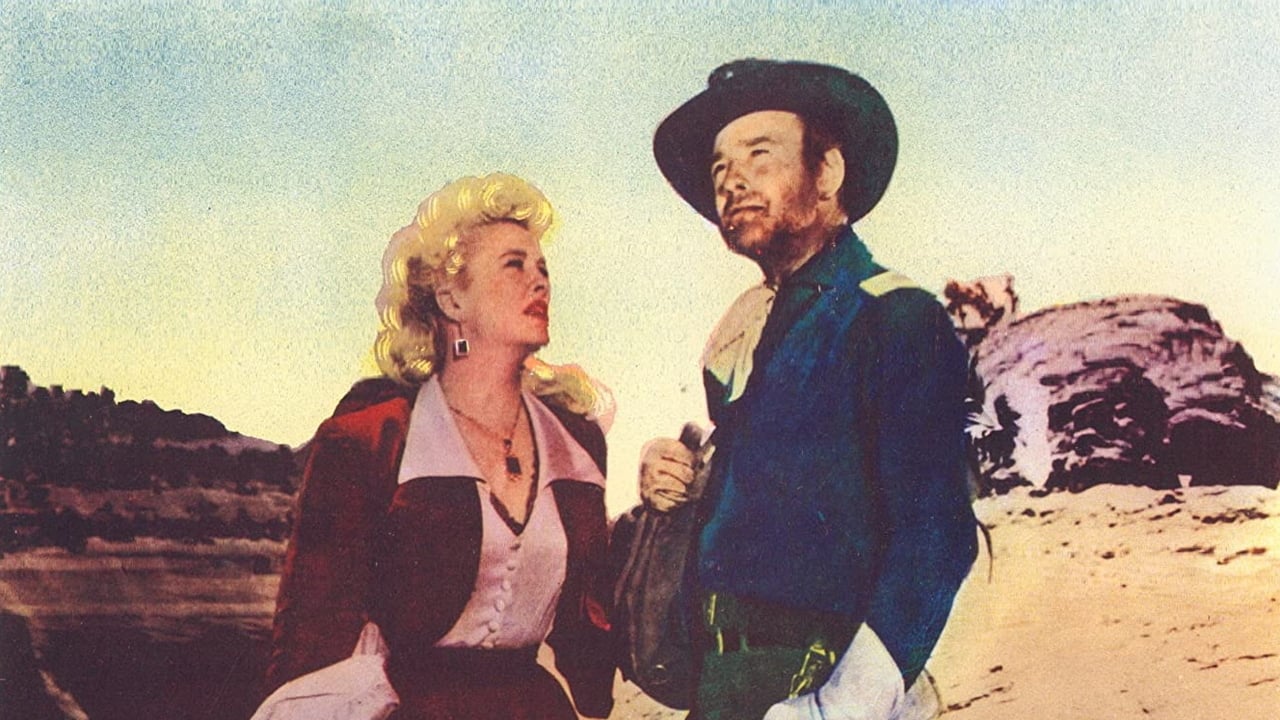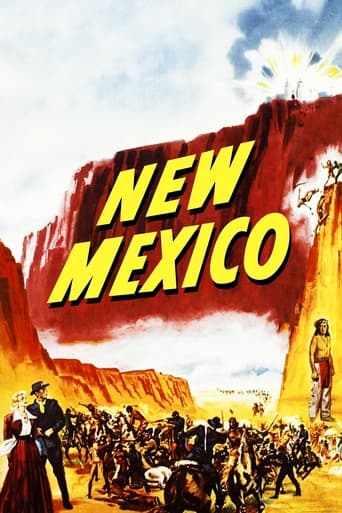

Although this film is entitled New Mexico, it certainly might have taken place in any part of our Southwest. It begins with the totally ridiculous premise that Abraham Lincoln took time out in the middle of the Civil War to visit New Mexico territory and make promises to Indian chief Ted DeCorsia that the US government would be feeding the Indians. That was really too much to swallow, anyone who has even a rudimentary knowledge of American history knows that Lincoln never got beyond 50 miles of the White House during his term of office. So when the film began with Hans Conreid as Lincoln getting out of that stagecoach I figured this one would be one ridiculous film.It turned out to be a film that was not half bad, but could have used a lot of improvement including cutting those first six or seven minutes and some other premise used to show the disappointment of the Indians in the white man's failed promises. In that meeting with Conreid and DeCorsia is Captain Lew Ayres who wants peaceful relations and is a man of some honor. But an ambitious colonel played by Walter Greaza and a corrupt judge played by Lloyd Corrigan turn the promises of Lincoln into dust. When Greaza is murdered by the Indians, Ayres has to go in pursuit of DeCorsia.Circumstance places Ayres and his men along with saloon entertainer Marilyn Maxwell and Corrigan at an old mission built on a hillside where they hold off the attacking Indians. One of the troops, Raymond Burr, shoots down a young child who is DeCorsia's son giving him and additional reason to hate the army.Jeff Corey who was having blacklist troubles got to appear in this film as a cavalry Indian scout. That this was an independent film is significant because Corey could not get work at a major studio. New Mexico which was an independent film released by United Artists is too low budget and its characters not sufficiently developed which would have made a much better film. It was a sincere effort and no one in the cast need be ashamed of their work here.
... View MoreThe movie centers on a strong clear plot structure strongly defined in the beginning. The story progresses to a seige, where pure character takes over the plot as the main element that defines the fine quality of this movie. For some reason I did not know at the time, I loved this movie as a child. Later in theater I learned the quality aspects that New Mexico writers and actors used. I wish it was available in DVD or VHS.
... View More"New Mexico" is a fair cavalry-versus-Indians movie that could have been better. It has a good cast and provides a couple good moments, but a routine script and a rather stereotyped set of characters keep it from realizing its potential.Lew Ayres, a fine actor, has the lead role of the cavalry's Captain Hunt, and the rest of a good cast is highlighted by Andy Devine, Raymond Burr, Marilyn Maxwell, and Ted De Corsia. Unfortunately, most of their characters are not given much depth, and they do not have much dialogue to work with either.The lack of depth of Captain Hunt is the most important, as the other characters are primarily defined in terms of their relationship with him. At the beginning, he seems to be developing as an interesting character. He is present at a meeting between President Lincoln and Chief Acoma (De Corsia), and seems to be sympathetic with the problems that Acoma's people face after Lincoln's untimely death, even defying for a while his insensitive and boorish military superiors. But when the inevitable conflict breaks out, Ayres is just given some stereotyped lines about how the Indians ought not to resort to violence. Likewise, Acoma, as the leader of the uprising, is a thoroughly conventional character, although at least portrayed with some degree of sympathy.There are some decent action sequences, and a couple of creative touches in the battle scenes, but it is likely that "New Mexico" will be of interest mainly to those who enjoy any and all Westerns.
... View MoreThe great cast here, including Ayers, Maxwell, Divine, and Conried cannot save this predictable and routine Western effort. All the stereo-types are here, the fallen woman, the honor-bound Cavalry Captain and comic relief, but none of it seems to work well. The ending attempts to be different, but by that time the viewer could not care less.
... View More